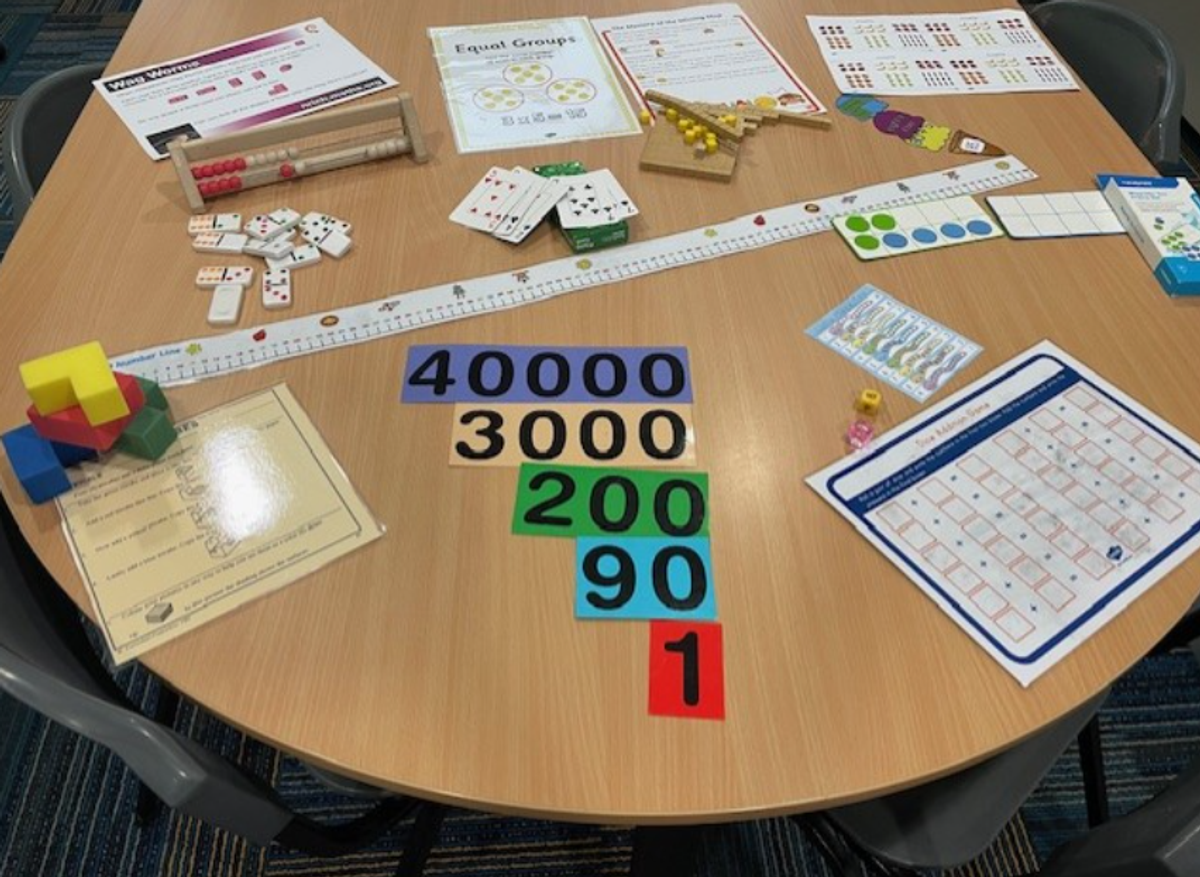Intervention at St John's

Numeracy - Christine Buhler
My Role as a Numeracy/Mathematics specialist is to provide support for students and teachers by offering the following programs.
Extending Mathematical Understanding Intervention (EMU) program provides small group explicit targeted teaching for students with identified learning gaps or who need to build confidence and fluency in applying mathematical strategies.
These sessions take place daily, 4 times per week for 15 to 20 minutes. Students typically receive a short sharp burst for a term and return to their class program. Some students need more support and continue with the program for a longer time frame.
Mathemagicians
St John's Mathemagicians is an extension program for students deemed to be at least 1 year above their year level of schooling in at least one area of mathematics.
Groups are planned and organised for students from across the year levels. They come together to build mathematical thinking and problem solving in a variety of scenarios, puzzles and games. Sessions are held twice a term and run from 1 to 3 hours.
Students are invited to attend based on their classroom data and performance.
Christine Buhler
Literacy - Denise Hall
Some children in Years 2 and 3 are participating in the Minilit Sage intervention program.
The MiniLit Sage program is a research-based reading intervention designed for young children who have some gaps in developing their literacy skills. It focuses on teaching the foundations of reading, including phonics, vocabulary, and fluency.
The program is specifically tailored to help children with reading, especially those in the early grades.
Through structured lessons, MiniLit Sage works on building a strong understanding of letter sounds, blending sounds into words, and recognising high-frequency words, all of which are key to becoming a confident reader.
The program is typically delivered in small group sessions, ensuring that each child receives more personalised attention. It’s been proven effective in helping children catch up to their peers in reading, making it a valuable tool for those who may have missed or misunderstood some of the classroom instruction.
Overall, it’s a supportive and proven way to boost a child’s reading ability and confidence.

